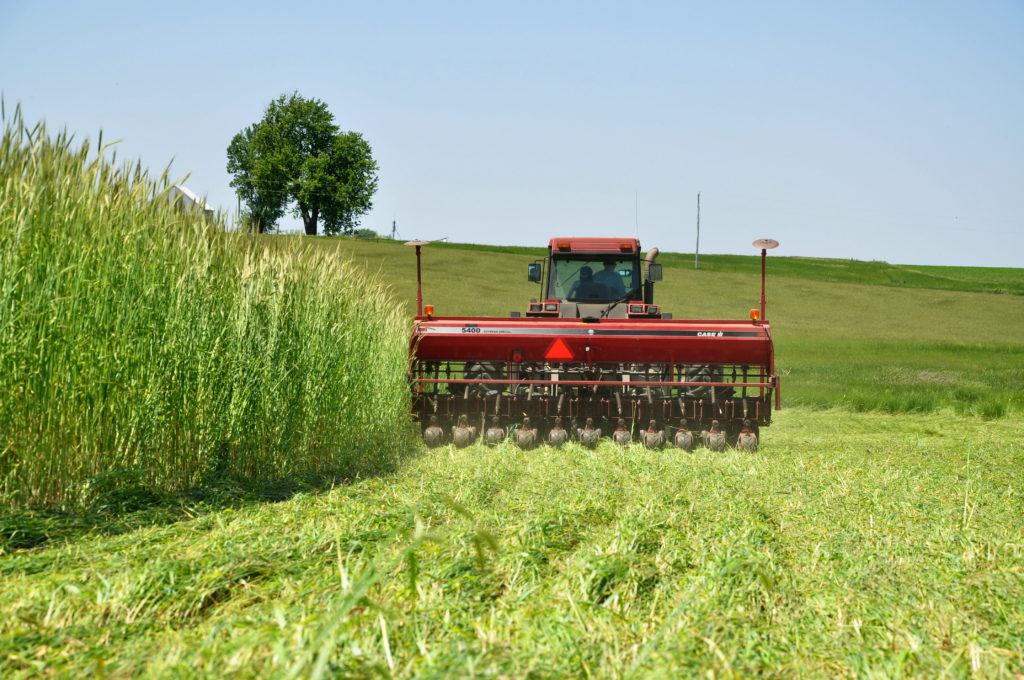By Sofia Carr
carrsofi@grinnell.edu
From September 15-21, Iowans are observing Farm Safety and Health Week, a time dedicated to bringing awareness to the necessity of safety in the agriculture industry.
The national theme this year is “Shift Farm Safety into High Gear.” Each day of the week has a theme, covering issues from tractor safety, to opioids and suicide, and health and safety for women. Programming for Farm Safety week also includes webinars and public service announcements videos.
Here in Grinnell, farms are a common sight. Even the short drive to Walmart includes sightings of farmland or farm equipment stores. Farming certainly holds a place of significance in this rural community. Some locals depend on farming for their livelihood, so the importance of keeping themselves, their families and other workers safe cannot be overstated.
The Grinnell Heritage Farm is a local farm that grows mostly vegetables, fruits, and nuts. The 80-acre certified organic operation has been in Andrew Dunham’s family since 1857. His great-great-grandparents were Levi and Harriet Grinnell, Levi being the cousin of J.B. Grinnell the founder of the town. The Farm does business directly with grocery stores and intermediaries—food hubs and aggregators—but also runs a CSA, Community-Supported Agriculture, giving around 300 families a weekly share of their own locally grown organic food.
According to Dunham, the Grinnell farming community has changed in recent history. “As we’ve gone more and more toward petrochemical farming, the farming community has become less and less close-knit. And there are fewer and fewer farmers actually farming,” he said. “And they’ve gotten drastically older, on average.” Changes in farming technology, namely uses of chemical fertilizers and machinery, and the consequent shifting demographics among farmers has had a perceptible impact on the Grinnell community.
“Rural school districts in Iowa are struggling vitally,” said Dunham, “It’s really a move in the tax base. Farming used to be a middle or lower-middle-income job, and now there’s so few farmers that a lot of those middle-income jobs have gone away. Smaller-scale farms really supported a lot of ancillary services in town, and a lot of those have gone away.” This has caused the middle-class in rural areas to erode over the years.
Changes in farming practices have predictably impacted the environment. Much of the subsidized corn growth in the area emits massive amounts of pollution, and that pollution is not taxed. “Part of the reason is that the farm bills have been written by agribusiness to sell products to farmers… the farmers are just being farmed,” said Dunham.
This issue can be traced to those forming the laws. “The government is picking the winners and losers based on the legislation that they propose… as long as you can lobby congress enough to get what you want, you’re going to win,” he said.
Dunham is aware of the economic, environmental and political issues that come with the farm industry. He is also an advocate for farm safety. “Every farm is going to have some injuries and accidents do happen from time to time. We’re just trying to minimize the frequency and severity.”
Oddly enough, there are few safety requirements for farming equipment. Especially when buying used equipment, there might not even be a manual. The Grinnell Heritage Farm has taken the initiative to train their farmers on how to use largely unregulated equipment. Because of their training regimen, Dunham’s farm boasts zero fatalities.
The agriculture industry is dynamic and intersects with nearly every facet of our lives, including the economy, environment, and public health. The Grinnell Heritage Farm provides healthy food to the area and beyond, contributing to the Grinnell economy and is conscious of its carbon footprint. In enacting moral farming practices and emphasizing the importance of safety the Grinnell Heritage Farm is able to maintain its 80 acres of land and continue to serve our community.



























































